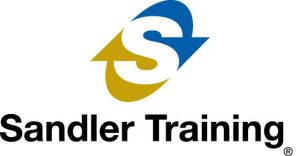Business Today
Whether leading a family, volunteer group or business I hear from people that they are frustrated. It can be so hard to just get a team, get people, get our own children to take ownership and grow to be self-sufficient.
Sometimes we may just do things on our own whether that’s the morning dishes or taking care of a client because the process of ensuring others take action – and do it well – can be challenging with inconsistent results. That can lead to unhappy clients and loss of reputation and revenue. Or at home it leads to a messy kitchen, and no one wants that outcome! It makes me think of a hot July morning. My son was headed to camp. I had an early morning meeting with my biggest client. So, I packed with my son the night before. One problem – his bathing suit was wet and still hanging to dry in the laundry room. I said, “Don’t worry. Tomorrow morning early I’ll put your bathing suit in your suitcase. It will be ready to go by the door.” So, what happened the next morning? In the middle of my important Zoom call, my son bursts into my home office yelling at the top of his lungs, “Where’s my bathing suit?” At this point, I’m seriously questioning my parenting skills. Why can’t my 13-year-old follow instructions?
Here’s the problem. I’m dealing with learned helplessness. I did for John what I should have coached him to do and expected him to do himself. When we do work for others, that they are able to do, and it goes wrong what happens? We are blamed for the problem! I ended up with an embarrassing interruption and a teenager who’s not taking initiative for his own packing. Translate this to your business or volunteer leadership roles. Do you ever feel like it’s easier to do work yourself because you just can’t develop others to the level where you can trust the outcome? One weary business owner told me she was tired of hiring people who just created more work and problems for her to fix. She is working nights and weekends to get it all done. Ever felt that way?
So how do you avoid learned helplessness? First, before telling someone what to do you need to understand what’s important to them. Our people work for their reasons not ours. Second, apply a self-discovery coaching process to ask them how they can solve the problem. Get them thinking first and taking ownership of the solution. Third, ask how you can help them accomplish that – draw that out of them in their own words.
Next summer I’m not telling my son what to do. I’m not taking on packing for camp. I’m going to avoid learned helplessness and coach him to pack so he can enjoy the camp he loves to go to. Looking forward to that outcome!
 -Kristine Sizemore
-Kristine Sizemore
205-306-8164, www.ksainc.sandler.com
Sizemore lives in Hoover, Ala. and is a Consultant, Coach, Trainer and Speaker focused on the subconscious psychology of Human Interaction and Motivation. Her firm specializes in Sales, Management and Leadership Development for Proactive Business Growth.








